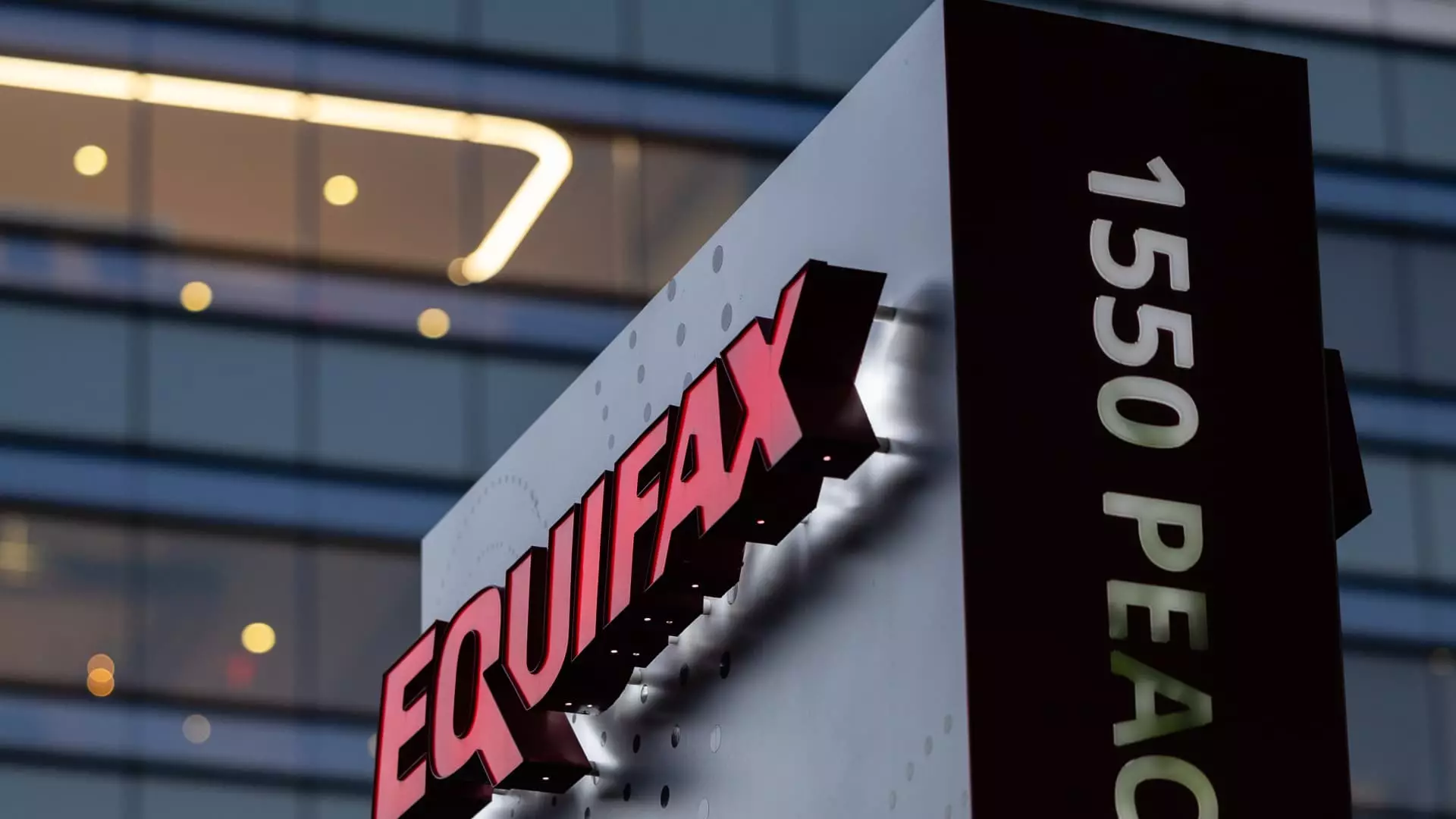In a significant move that reflects growing concerns over consumer protection, the Consumer Financial Protection Bureau (CFPB) has imposed a $15 million fine on Equifax, one of the three major credit bureaus in the United States. This decision was predicated on findings that Equifax displayed a worrying pattern of neglect regarding consumer disputes. The federal agency’s announcement indicates that the company failed to adequately investigate disputed information, a core responsibility of credit reporting agencies that directly affects consumers’ financial lives.
Credit reports serve as comprehensive records of an individual’s financial behavior, encompassing everything from loan payment history to bankruptcy filings. Yet, as highlighted by Adam Rust, director of financial services at the Consumer Federation of America, the repercussions stemming from inaccuracies in these reports can be dire. Such errors can hinder a person’s ability to secure loans, obtain employment, or even rent a home. Thus, the integrity of these reports is not merely an administrative issue; it is of paramount importance to the daily lives of millions of Americans.
Equifax processes an astounding 765,000 consumer disputes monthly, a staggering volume that underscores the scale of their operations. Yet, the CFPB’s findings point to systemic failures in their dispute resolution processes and technology implementations dating back to as early as October 2017. Among these failures were instances where the company disregarded critical consumer documents, reintroduced previously removed inaccuracies into reports, and provided consumers with unclear and contradictory communications concerning their disputes.
This negligence ultimately led to Equifax violating the Fair Credit Reporting Act, a law designed to protect consumers by promoting fair and accurate reporting. The repercussions of ineffective dispute management can extend far beyond individual financial mishaps; they can erode public trust in credit reporting agencies as a whole. Given that the functioning of these agencies is crucial for the overall financial health of consumers and the economy, Equifax’s shortcomings amplify calls for reform in this sector.
In light of the hefty fine, an Equifax spokesperson expressed a desire to “turn the page” on the CFPB’s protracted investigation, emphasizing the company’s commitment to improving their systems. Over recent years, Equifax has reportedly invested more than $1.5 billion in technology upgrades and infrastructure improvements. This includes substantial modifications to their dispute process and enhancements to consumer support systems. While these changes are admirable, skeptics may question whether these efforts are enough or merely a reaction to financial penalties and public scrutiny.
Reflecting on the broader context, other credit bureaus, like Experian, have also come under fire, facing allegations of conducting “sham” investigations into credit report inaccuracies. Chi Chi Wu, senior attorney at the National Consumer Law Center, remarked that these issues are not new. Credit bureaus have been mired in controversies for decades, raising concerns about how entrenched these problems are and whether the changes promised by Equifax will be sustained or superficial.
For many consumers, this situation serves as a crucial reminder of the importance of actively engaging with their financial information. The Federal Trade Commission recommends that individuals check their credit reports annually, and ideally before applying for credit, loans, or jobs. Such vigilance is not only prudent; it can mitigate the risk of financial harm caused by reporting errors. Adam Rust encourages consumers to familiarize themselves with their credit reports, ensuring that all personal and account details are accurate.
Understanding the nuances between a credit report and a credit score is also vital. They are interconnected, yet serve different functions. A sudden change in credit score can be a red flag, indicating underlying issues that may require immediate attention.
In light of potential inaccuracies in credit reports, consumers should know the proper procedures for disputing errors. Wu advises that disputes should be submitted in writing, along with supporting documentation, preferably through postal mail to ensure a receipt of delivery. Additionally, filing complaints with the CFPB and state attorney general’s offices can amplify consumer voices and signal the need for regulatory scrutiny.
For consumers grappling with persistent inaccuracies or facing undue financial burden as a result, it may be wise to seek legal counsel. While not every error will justify a lawsuit, significant financial impacts warrant serious consideration of legal recourse. Organizations like the National Association of Consumer Advocates can serve as valuable resources in locating appropriate legal assistance.
The recent findings around Equifax highlight critical issues within the realm of credit reporting that demand attention. Accuracy, consumer safeguarding, and reliable customer service are not mere luxuries; they are essential facets of a functional financial ecosystem. As we reflect on this incident, let it serve as a catalyst for more profound changes in the credit reporting industry, aimed at restoring consumer trust and ensuring fair practices for all.

